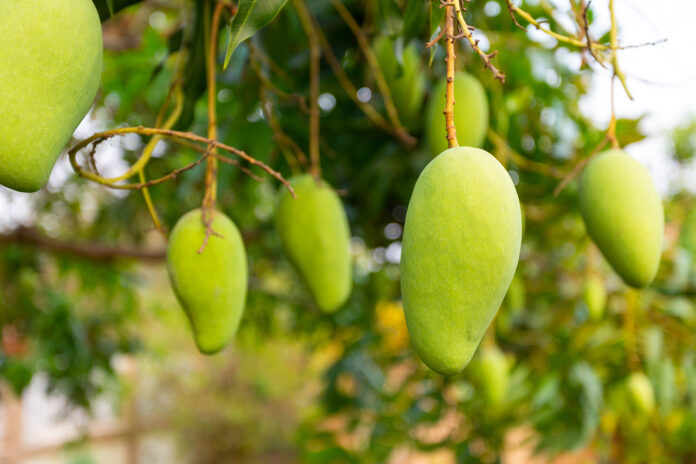Let us begin by clearing the air. So far as we know, mango production in Pakistan has not declined by 60%. That does not change the fact that our prized mangoes are definitely under threat.
The final tally of mango yield for this year is yet to be finalised, but what is slowly becoming clear is that estimates made by provincial agriculture departments are significantly off from the on-ground situation. Farmers, exporters, and researchers have all been trying to ring the alarm bells to warn people about the dire straits that this year’s mango production faces and we can say with some certainty that there will be less of the beloved golden fruit this year.
Here is what we know. Mangoes in this current season have faced a cacophony of disasters. To start off, this has been the hottest summer in more than half a century, with average temperatures in mid-March (a vital time for mango trees) soaring between 37-42 degrees, compared to the usual 34 degree temperature that this month sees in Punjab’s mango belt. This has made the mangoes more susceptible to disease, premature ripening, and being of a lower quality. In addition to this, high prices of fuel and an energy shortage have meant farmers have been unable to run their tubewells and provide irrigation to mango trees which require a constant supply of water. The content in this publication is expensive to produce. But unlike other journalistic outfits, business publications have to cover the very organizations that directly give them advertisements. Hence, this large source of revenue, which is the lifeblood of other media houses, is severely compromised on account of Profit’s no-compromise policy when it comes to our reporting. No wonder, Profit has lost multiple ad deals, worth tens of millions of rupees, due to stories that held big businesses to account. Hence, for our work to continue unfettered, it must be supported by discerning readers who know the value of quality business journalism, not just for the economy but for the society as a whole.To read the full article, subscribe and support independent business journalism in Pakistan










Here is what we know. Mangoes in this current season have faced a cacophony of disasters. To start off, this has been the hottest summer in more than half a century, with average temperatures in mid-March (a vital time for mango trees) soaring between 37-42 degrees, compared to the usual 34 degree temperature that this month sees in Punjab’s mango belt. This has made the mangoes more susceptible to disease, premature ripening, and being of a lower quality. In addition to this, high prices of fuel and an energy shortage have meant farmers have been unable to run their tubewells and provide irrigation to mango trees which require a constant supply of water.
From Multan we can grow and export best mango and can increase export of mango, Govt. should take action to grow mango export
Dear Sir/Madam, (HS 310100)
We would like to offer: Organic Fertilizer. Our organic fertilizer is from guano. Guano is made from natural resources of Bats and Sea Bird droppings sediment (feces). P2O5 content is above 12%. The moisture content of our guano is less than 5%. Our guano is in the form of powder or granule. Packaging: nett. 25 kg in PP woven bag with inner liner (without printing). Product of Indonesia. For any interested parties, pls kindly contact for further details. Thank you. Contact: +6285892224657 (whatsapp, viber).
It is not my first time to pay a quick visit this web page, i am visiting this website dailly and get fastidious information from here daily.
온라인 카지노
j9korea.com